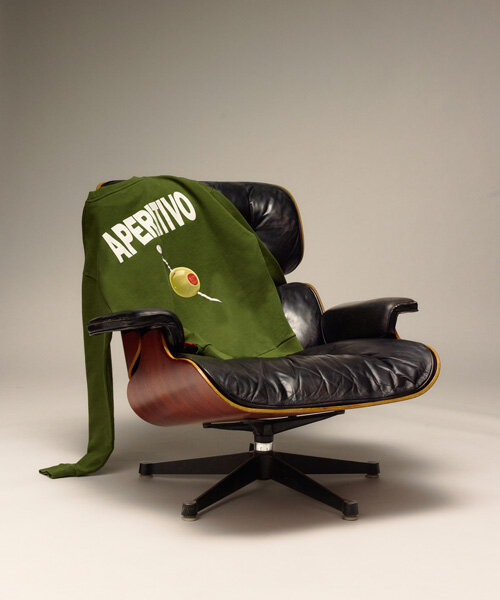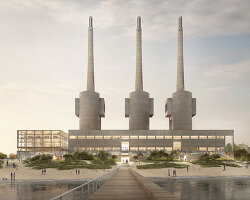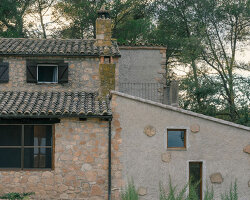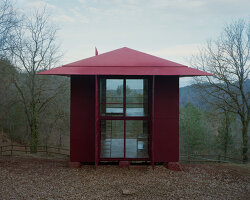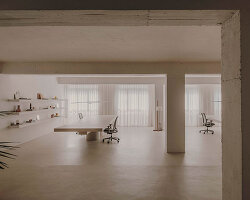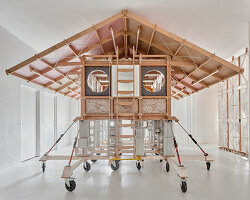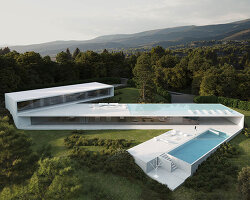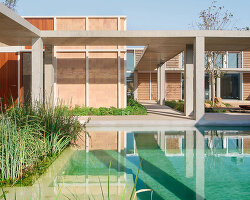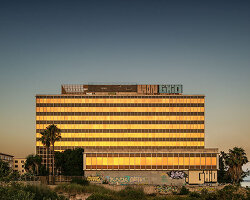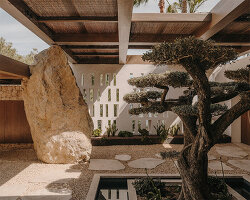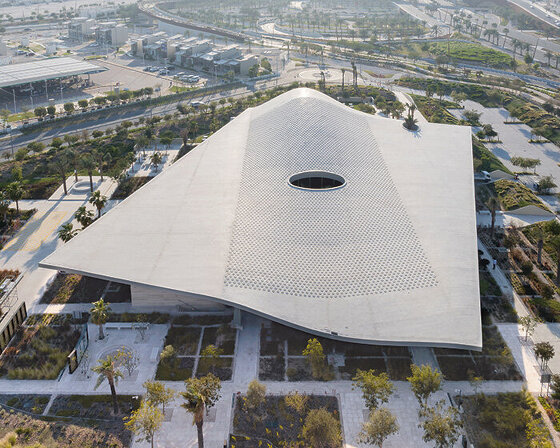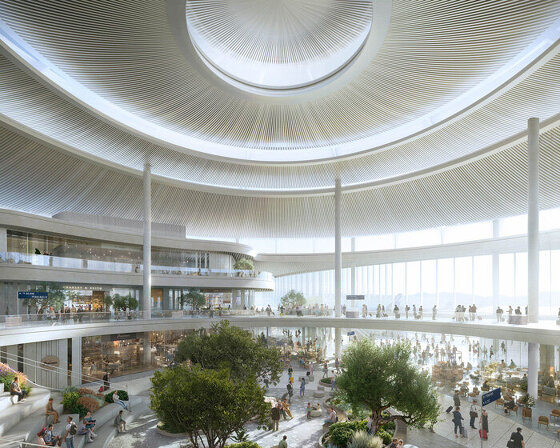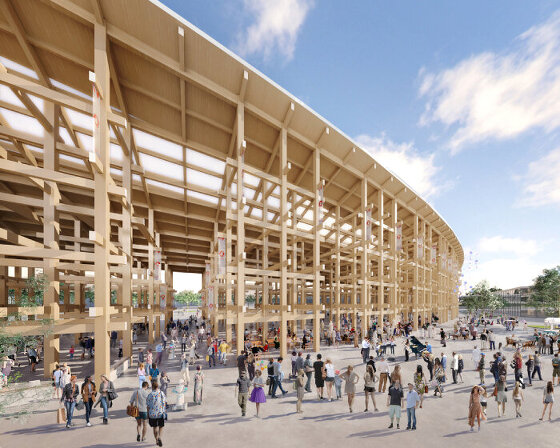Manifesta Nomadic Biennial Takes Over Barcelona
The Tres Xemeneies (Three Chimneys) of Sant Adrià de Besòs in Barcelona, Spain, are colloquially dubbed ‘The Sagrada Familia of the workers’ by locals. This industrial landmark of the Spanish metropolis is set to become one of the main venues for the 15th edition of Manifesta, the European Nomadic Biennial, which rotates to a different host city with each iteration. ‘Manifesta looks at the world through the eyes of one city every two years,’ Hedwig Fijen, Founding Director of Manifesta, tells designboom.
This year, from September 8th to November 24th, 2024, Manifesta will engulf Barcelona’s metropolitan region with a variety of installations in different venues. The objective is to explore alternative models for decentralizing contemporary culture in Catalonia.
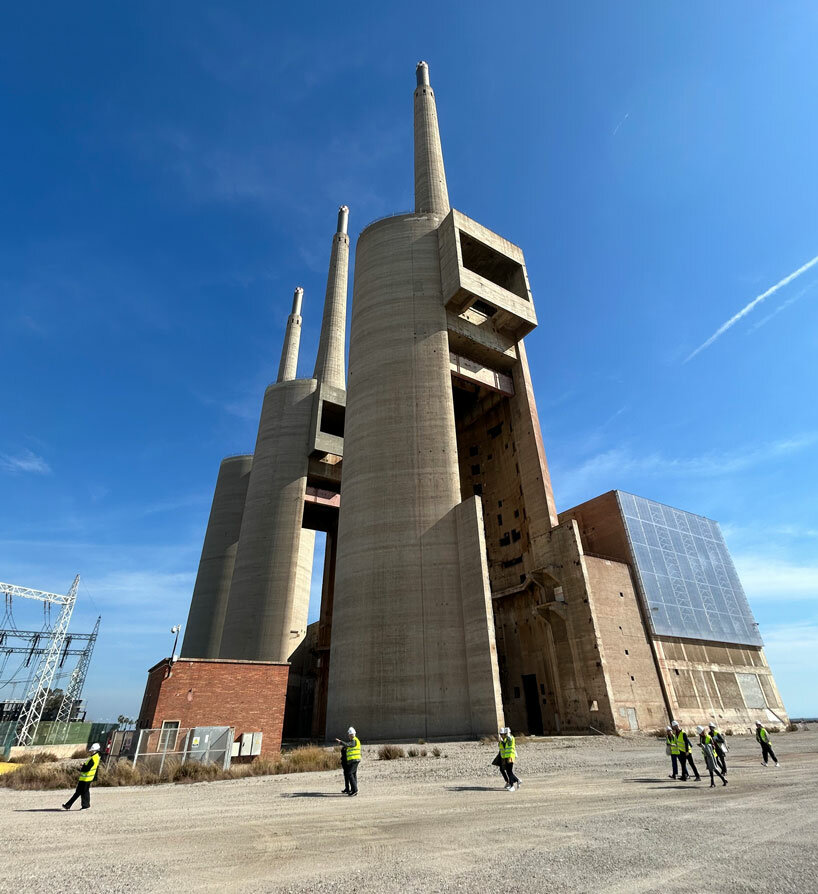
the Tres Xemeneies of Sant Adrià de Besòs | image © designboom
the tres Xemeneies (Three Chimneys) of Sant Adrià de Besòs
Constructed in the 1970s as part of a thermal power plant complex, the towering Tres Xemeneies reach an impressive height of 200 meters (656 feet). Despite local opposition due to aesthetic and environmental concerns, these structures remained in operation until the plant was closed in 2011. After the closure, the company that owned the plant wanted to demolish it, but this idea was not welcomed by the local community. For years, they fought to preserve the site to prevent the demolition. Against all odds, the Three Chimneys have been granted heritage protection by the municipality and continue to stand as enduring symbols of the area’s architecture and identity.
Since 2011, the Chimneys have remained inaccessible to the public. However, with Manifesta (find more here), this dormant landmark is set to be revitalized with a series of interventions planned both around and within it. Manifesta’s involvement promises to kickstart discussions surrounding the industrial landscape, the neighborhood’s future, and its intricate connection with the sea—a central theme of the 15th edition of the Nomadic Biennial.
‘We’re not going to turn it into a museum, we’re not going to turn it into a real exhibition space. It is already a performance and an artwork in itself,’ shares Hedwig Fijen. ‘What we are going to do is create islands with different functionalities, where people can hang out and be educated. There will be a bar, there will be a restaurant, and there will be architectural and artistic interventions in the space itself.’
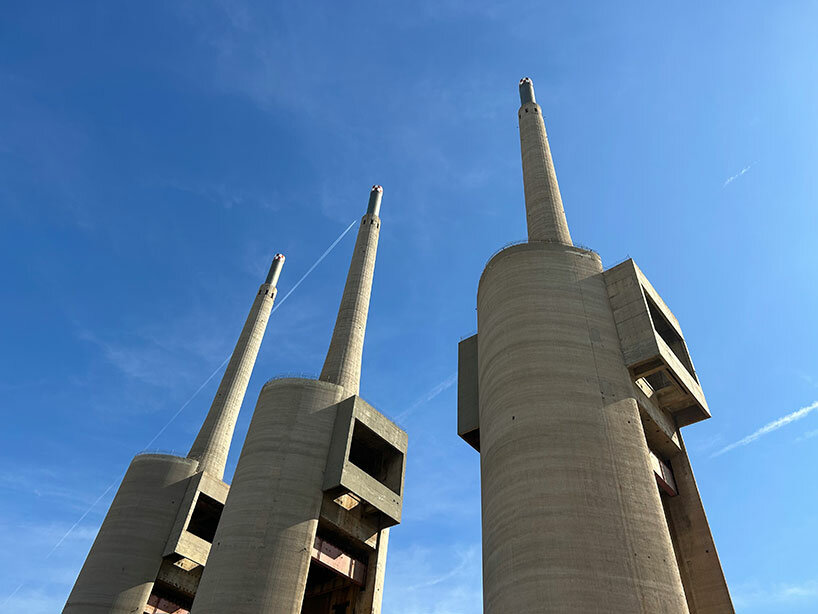
the Chimneys reach an impressive height of 200 meters | image © designboom
the 15th edition of manifesta
Manifesta, originated in the early 1990s as a response to the shifting social, cultural, and political landscape post-Cold War, and has since evolved into a nomadic biennial. Its mobile nature allows for a continuous examination of European culture amidst contemporary challenges, delving into the geographical, cultural, and socio-political fabric of Europe from a localized perspective. Recently, Manifesta has transitioned to a co-creation model, intertwining critical urban research, community engagement, and contemporary culture with local identities and aspirations. This approach maintains Manifesta’s nomadic essence while fostering collaboration with artistic communities, local citizens, grassroots organizations, and institutional partners to address societal issues relevant to the host city.
‘Manifesta is different from other biennials because it stopped being a curator -artist exhibition model a long time ago. Also, another different thing is that we are invited. We are nomadic. We work collectively. But we’re also working together with city authorities.We call this engaged autonomy,’ explains Hedwig Fijen. ‘We work together with city authorities to tackle a problem (…) It’s mostly about answering a question . We answer, but not always in the way the cities expect. Sometimes it’s very critical. You say: Listen, what’s happening in your city is not functioning. We do this by changing the narrative or by using artistic language.’
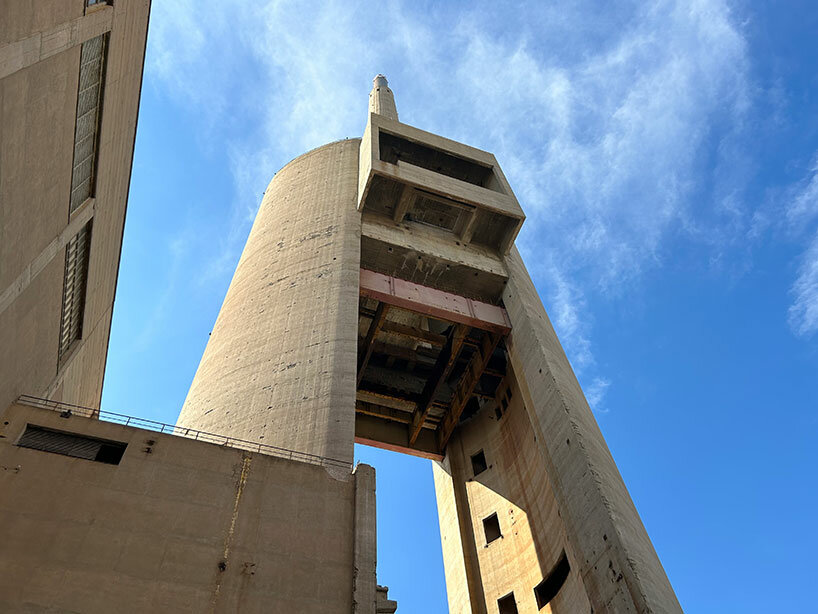
the Chimneys were constructed in the 1970s as part of a thermal power plant complex | image © designboom
This year, Manifesta embarks on a 12-week journey across 12 cities within the metropolitan region of Barcelona. At the heart of the 15th edition lies a question posed by Ada Colau, the former Mayor of Barcelona: How can the Nomadic Biennial contribute to fostering a cultural ecosystem in the suburban and decentralized areas, transcending geographical barriers such as rivers, seas, and mountains? This inquiry reflects the challenge of decentralizing cultural resources beyond the city center, which predominantly caters to tourists rather than local residents.
Additionally, the 15th edition of Manifesta tackles the imperative of crafting an alternative narrative surrounding ecological transition. Addressing this, the organization identifies symbolic venues corresponding to distinct clusters aimed at exploring potential solutions. These clusters include Imagining Futures, envisioning a world post-fossil fuel era, Balancing Conflicts, emphasizing collaboration among diverse areas and cities, and Cure and Care, highlighting the importance of prioritizing mental health and well-being amidst practical problem-solving endeavors. ‘The main questions are very practical and pragmatic. Now, we need to turn these into more philosophical questions with the help of the artists,’ says Hedwig Fijen. You can find the list with all the Manifesta 15 participating artists, here.
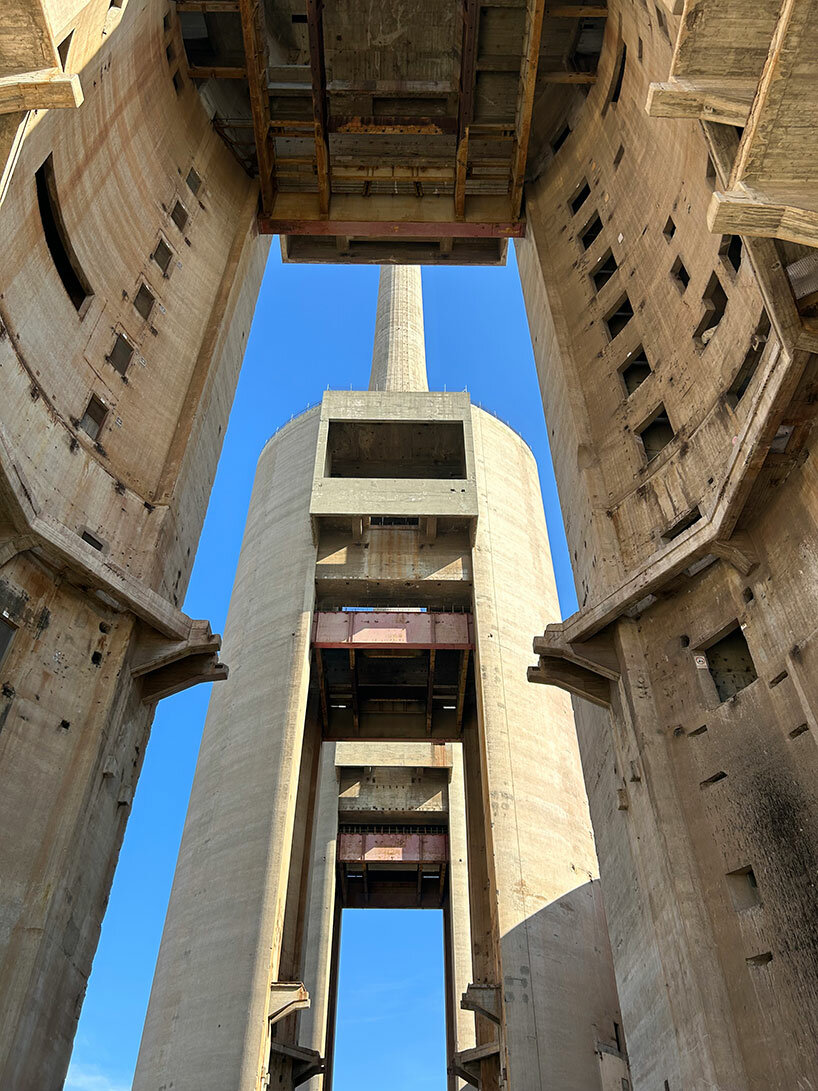
they structures remain inaccessible since 2011 | image © designboom
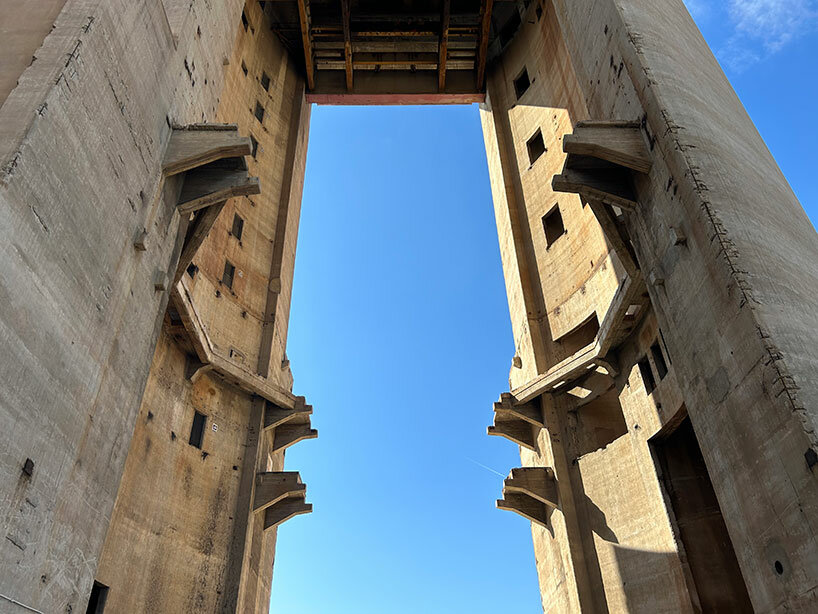
image © designboom
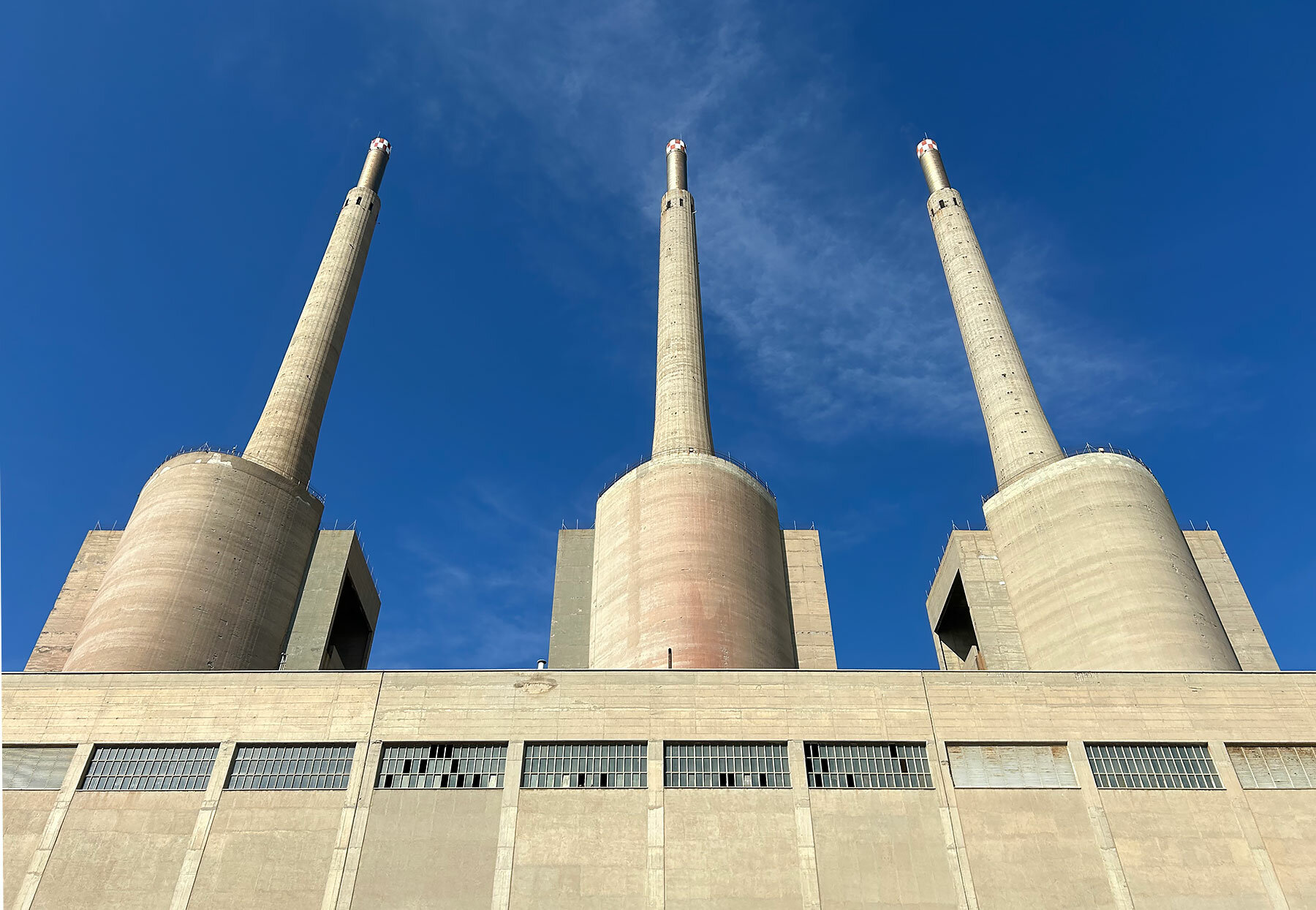
the rear facade of the Three Chimneys | image © designboom
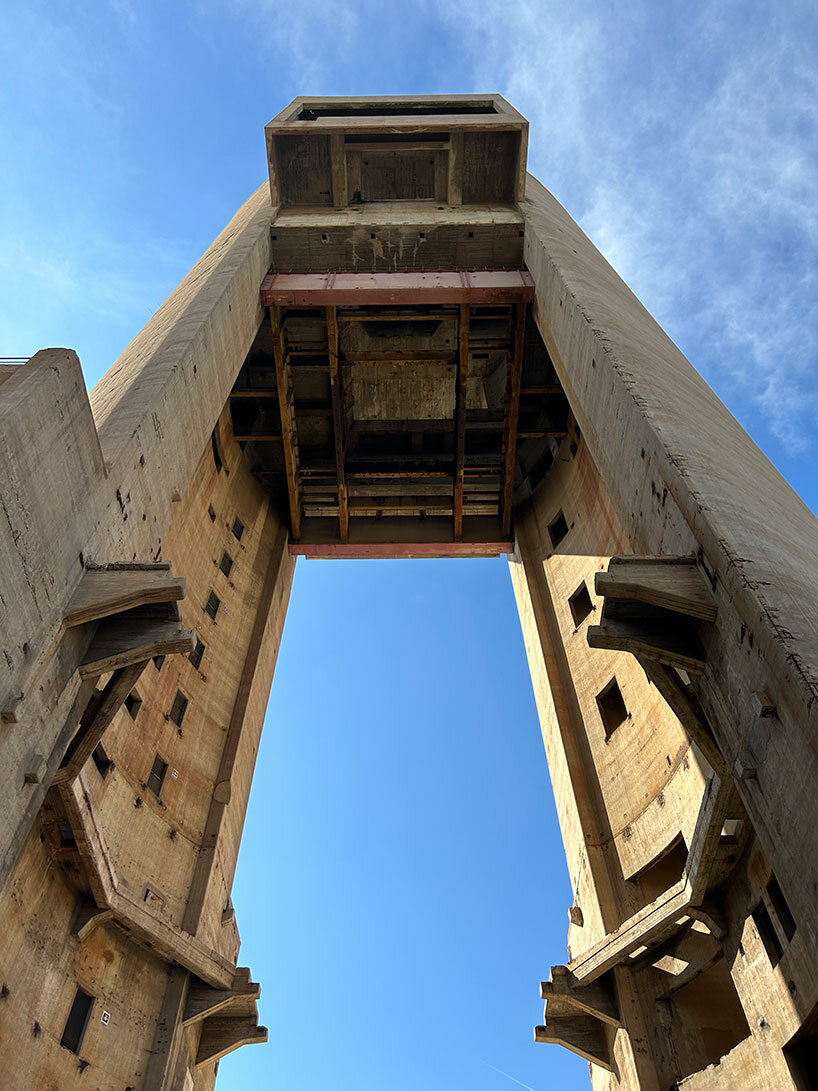
image © designboom
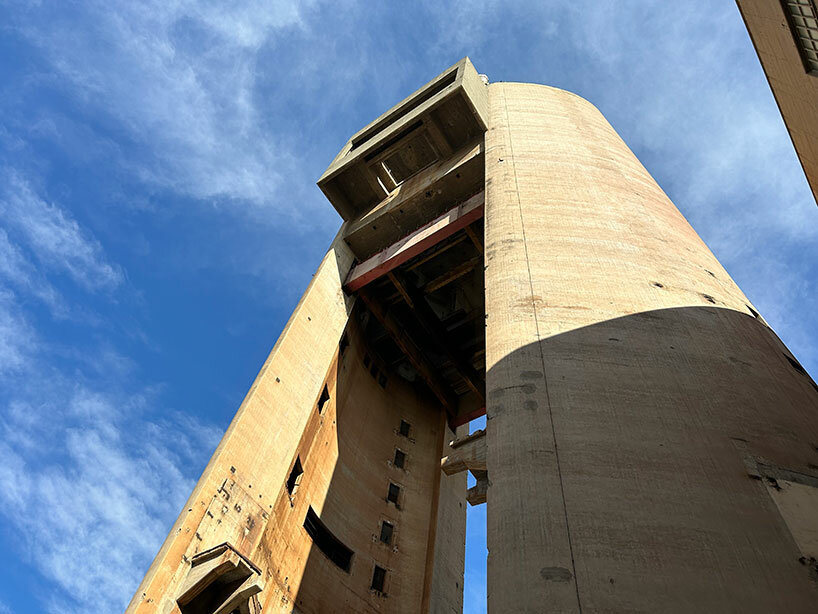
image © designboom
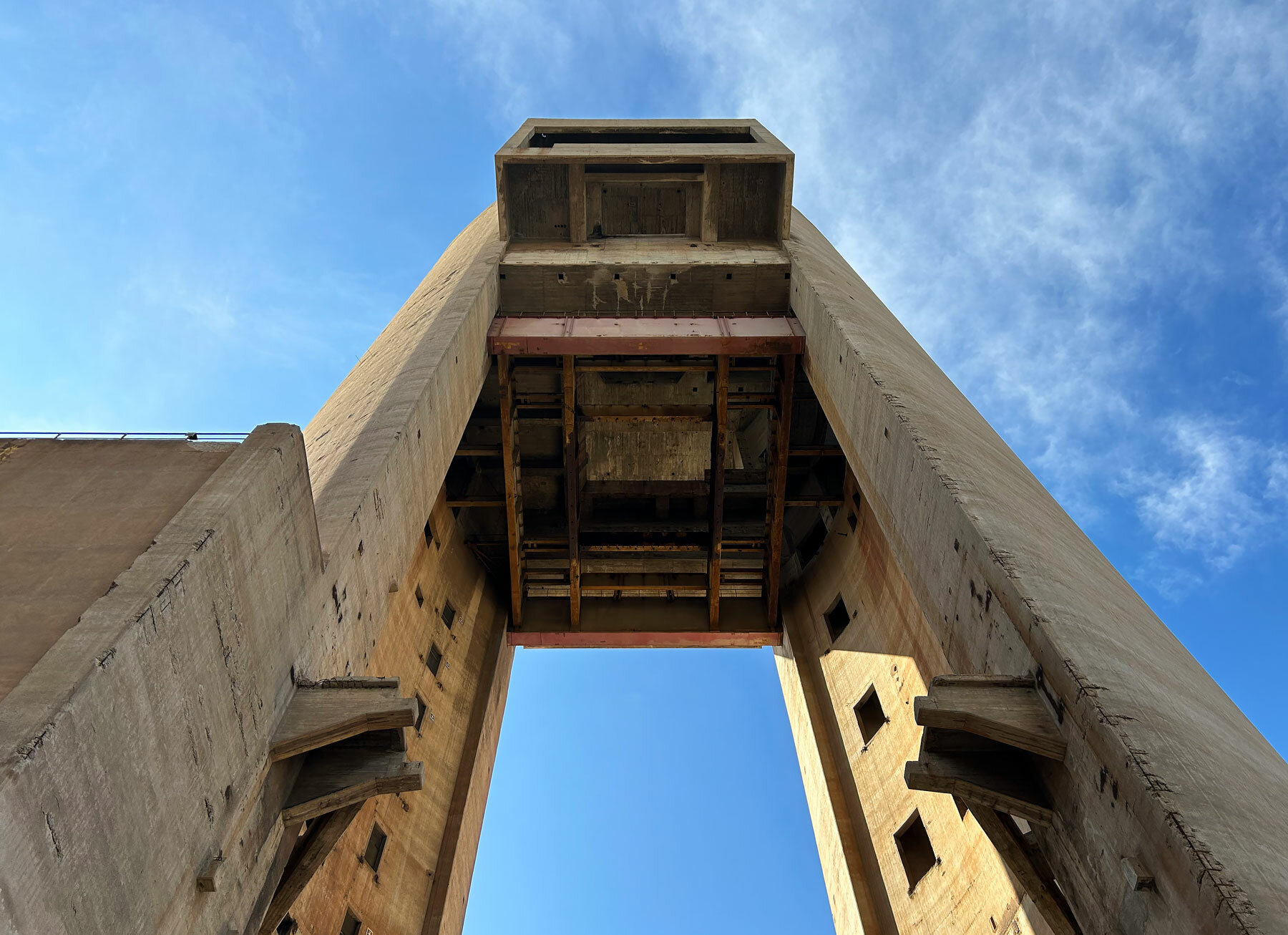
image © designboom
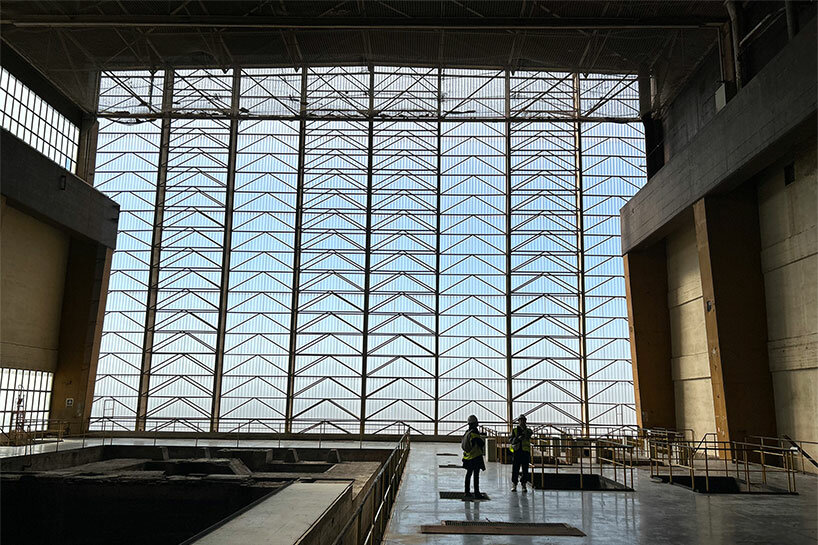
Manifesta will install interventions both around and inside the landmark | image © designboom
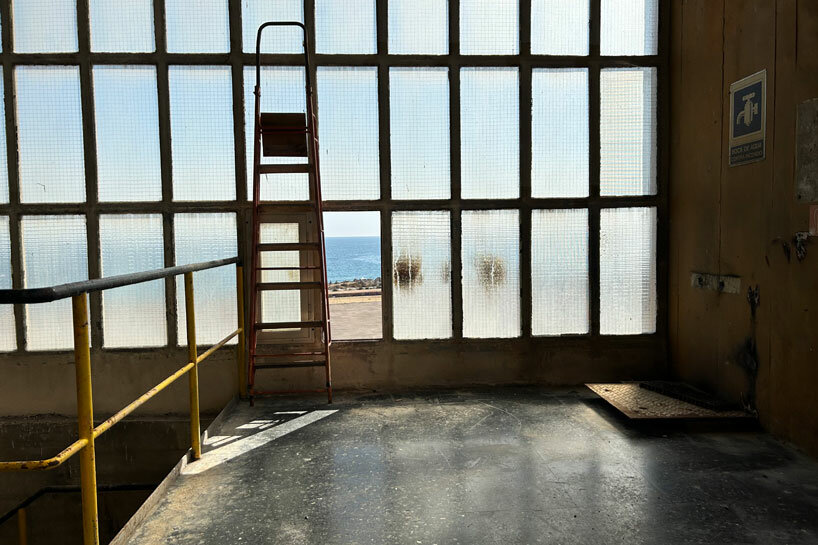
image © designboom
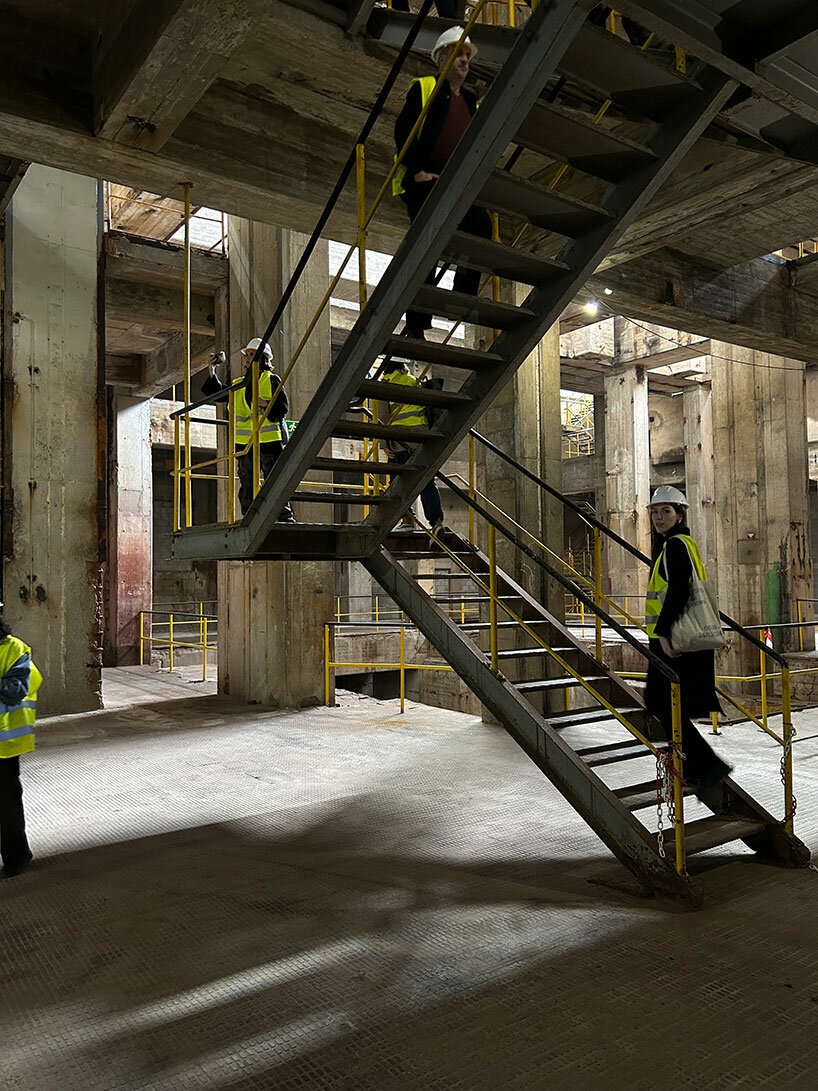
image © designboom
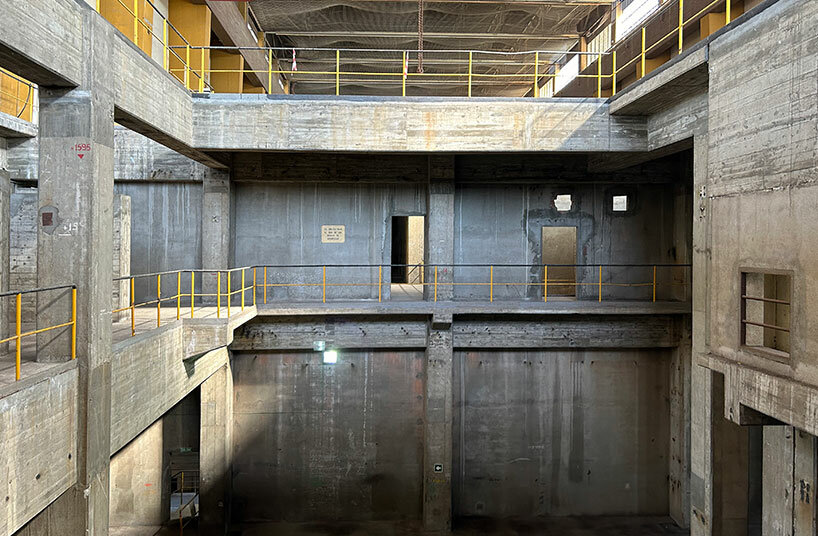
image © designboom
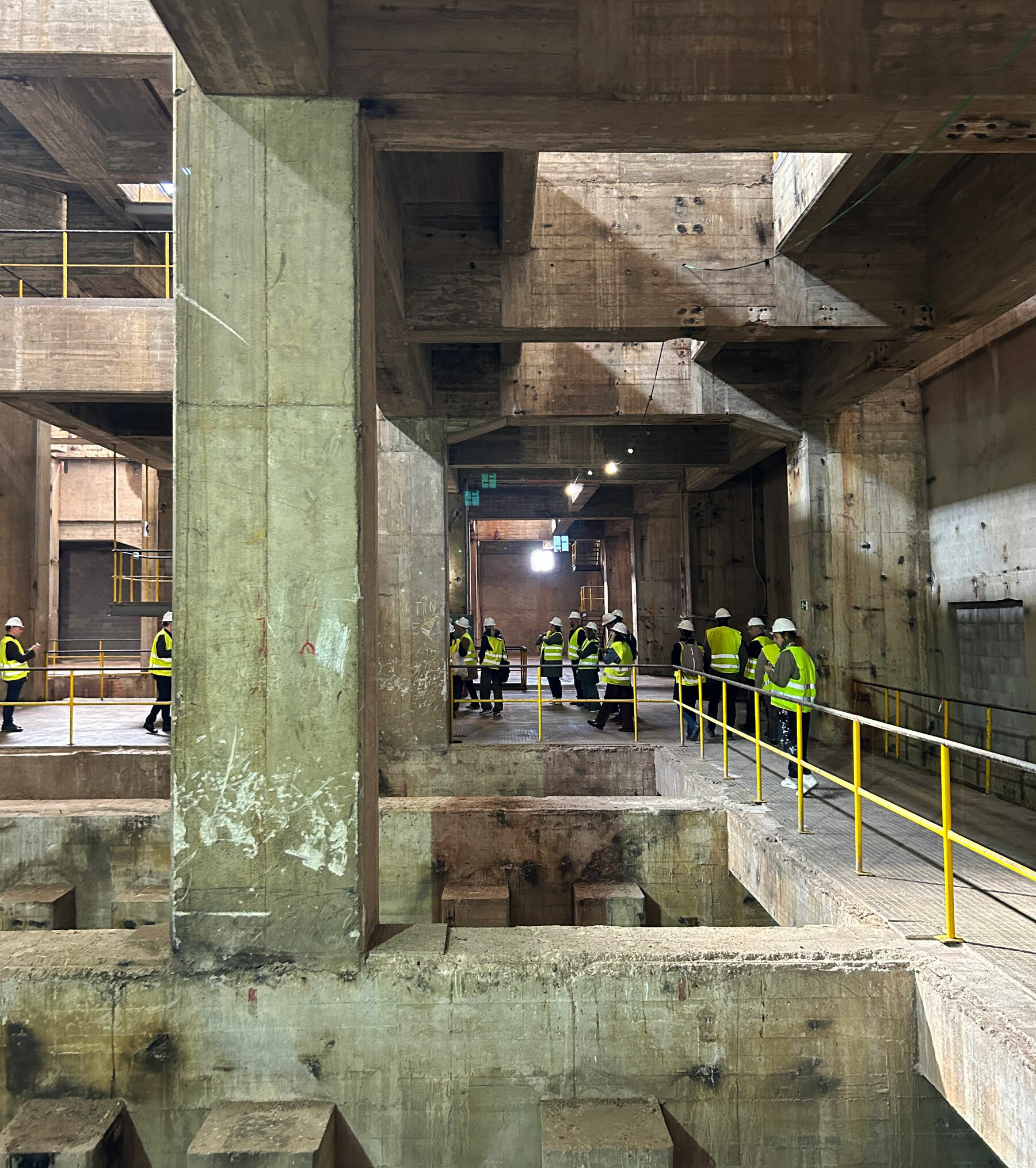
image © designboom
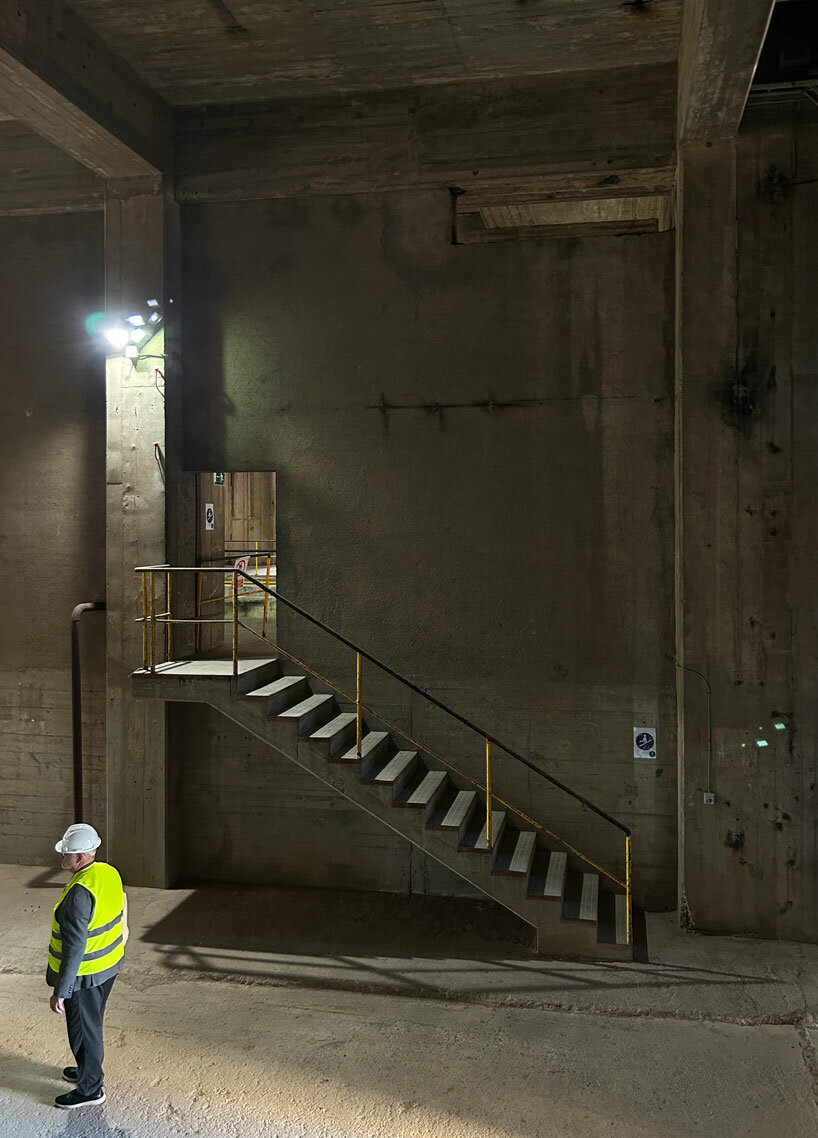
image © designboom
project info:
name: The Tres Xemeneies (Three Chimneys) of Sant Adrià de Besòs
location: Sant Adrià de Besòs, Barcelona, Spain
event: Manifesta | @manifestabiennial
dates: September 8th to November 24th, 2024
